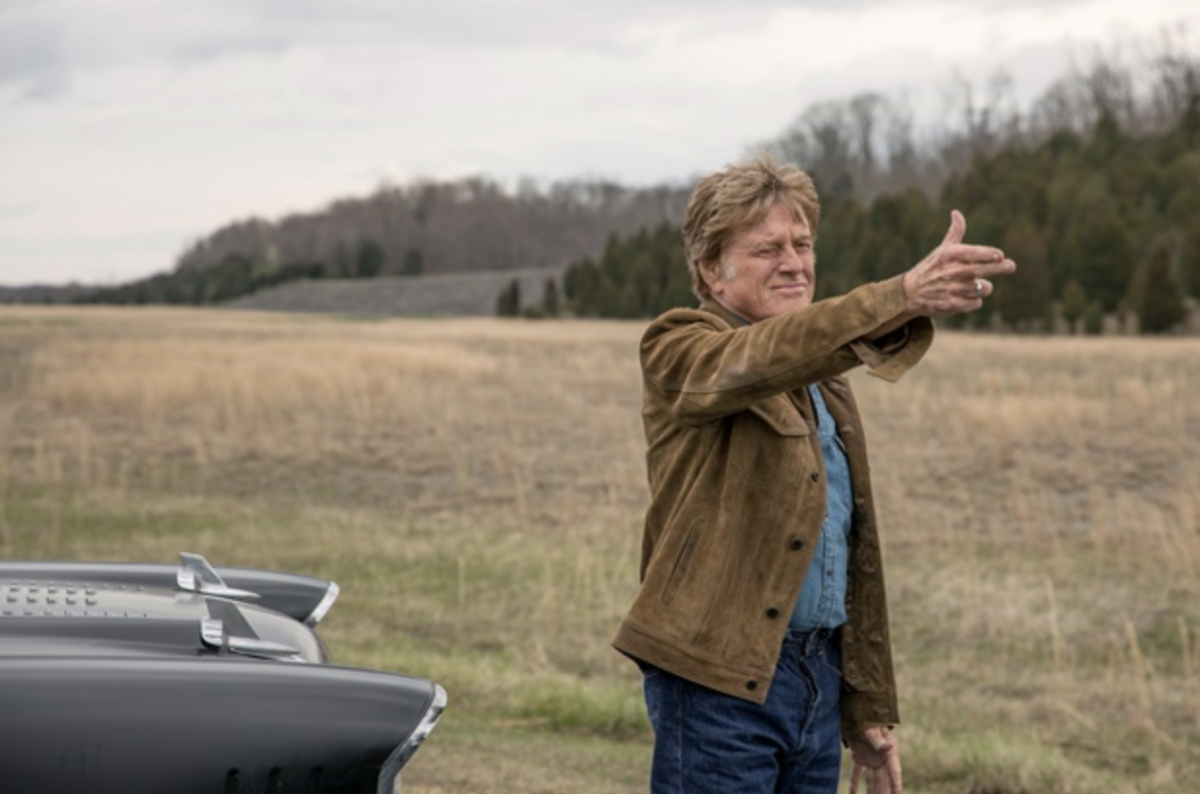“Here are all the times I broke out,” the affable bank robber Forrest Tucker (Robert Redford) casually remarks towards the end of David Lowery’s remarkable new film “The Old Man & the Gun.” What follows is one of the most emotionally-stirring scenes in recent memory, as a montage of Tucker’s various escapes from prison, some carefully coordinated, others more spontaneous, over the past 40 years plays. It’s an unbelievably beautiful moment in a film full of them, and plays like a greatest hits montage for Redford’s entire career in a film that serves as a perfect send-off for the retiring actor.
It’s easy to be skeptical any time a veteran actor announces his next role will be his last. Just last year it was hard to take even the most capital-S ‘Serious’ actor, Sir Daniel Day-Lewis, at face value when he announced that “Phantom Thread” would be his final on-screen appearance. Whereas that film (whose story was partly conceived by Day-Lewis) reckoned with the toxic nature of obsessive artists like its star and main character, Lowery’s film does the exact opposite, offering a simple, loving tribute to Robert Redford and the films that made him a movie star in the first place. More than a movie about a genial, unexpectedly beloved criminal, it’s also about how legends like Tucker, and Redford himself, are born.
The premise of “The Old Man & the Gun” admittedly veers dangerously close to the kind of filler Hollywood regurgitates year after year— the genre of ‘elderly men doing dangerous things’ featured in already long-forgotten movies like “Last Vegas” and “Just Getting Started.” A true story of gentle, aging bank robbers seems like ideal material for a pleasant-but-forgettable biopic, yet Lowery’s film rises above the trappings of its genre because it doesn’t condescend towards its subject. It never has characters spout cliches like “age is just a number,” instead opting to offer genuine insight into growing old and the process of deciding how to make the best of the time you have left.
The film doesn’t quite let its protagonist off the hook as easily as some would have you believe, though. All of Forrest Tucker’s heists follow the same formula: go into the bank dressed nicely, politely ask to see the manager and leave quietly with the stolen money. Yet for his peaceful policies and benevolent demeanor, the movie smartly recognizes that he is, after all, a criminal, and his refusal to sacrifice what is ultimately a hobby to him for a family isn’t something to be admired. It may get lost in the low-stakes charm of it all for some, but I found the film to be deeply moving and quietly very sad in the end.
Thanks to the gorgeous cinematography from Joe Anderson, the film, set in 1981, really looks like something that could’ve come from the New Hollywood era it pays homage to in a multitude of ways. Lowery, whose career has consisted of a minimalist western, a surprisingly soulful live-action Disney remake, an experimental indie about grief and now a quiet, generous heist film, is beginning to resemble the kind of varied and prolific filmmakers of that era like Robert Altman. Lowery’s co-opting of Altman’s style here is more than just a neat gimmick to add authenticity to his period piece; instead, it feels thematically in keeping with the film’s longing for the past and its mourning of the end of an era.
A well-rounded and likable cast also separates the film from others with similar premises. Redford is terrific as ever, and his portrayal of Tucker is remarkably understated and subtle. Sissy Spacek is just as wonderful as Redford’s love interest Jewel, and gives considerable depth to a somewhat underwritten character. Her melancholic performance elevates the character from the ‘concerned wife’ archetype, one that “First Man” has recently come under fire for, into a real person with hopes and fears of her own, whose existence isn’t defined entirely by her connection to the main character.
Unfortunately, however, Casey Affleck’s casting is one of the few places the film slips up – not only does the actor feel somewhat miscast as the worn-out, mustachioed detective John Hunt, but the fact that his appearance in a major awards-season contender comes so uncomfortably soon after the advent of the #MeToo movement isn’t exactly easy to overlook. It’s extremely frustrating, especially so in a film that’s otherwise so carefully and lovingly crafted.
In a season where so many of the expected tentpole releases like the aforementioned “First Man” are failing to register with audiences, it’s completely baffling that such an obvious crowd-pleaser like “The Old Man & the Gun” is barely getting a wide release. Its sincerity and willingness to be unabashedly sentimental are welcome traits that current movies could use more of, and it’s the rare film that’s a testament to the power of movies without ever feeling indulgent or out of touch. It may not be perfect, but like its protagonist, it’s so charming that you can’t help but root for it.
_Edited by Siena DeBolt | [email protected]_





